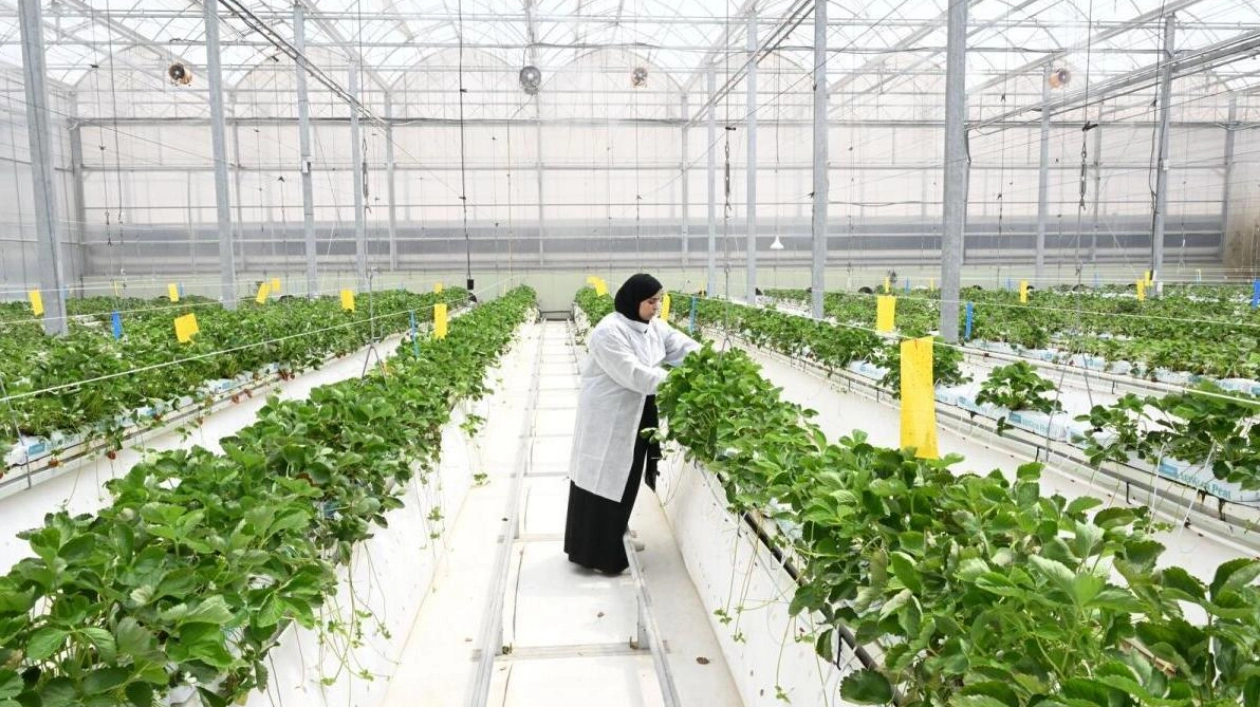The UAE's agriculture sector has made significant strides over the past decade and is projected to exceed $4 billion by 2029.
Experts believe that the growth of the agriculture sector in the UAE will help reduce reliance on imported products and enhance food self-sufficiency. Industry stakeholders, executives, and analysts highlight that factors such as the UAE's growing population, increasing demand for organic products, improved purchasing power, and rapid technological advancements are driving the sector's expansion.
Shailesh Dash, Founder of Dash Venture Lab, emphasized that the UAE government has launched the National Food Security Strategy 2051, aiming to place the country at the top of the Global Food Security Index by 2051. This strategy includes seven key pillars, such as fostering local talent and innovation, promoting a UAE-first culture in the food value chain, and providing substantial funding to industry stakeholders.
In recent years, the private sector has been actively involved in dairy and farming segments, with companies like Pure Harvest, Emirates Bio Farm, Madar Farms, and Global Farms leading the way. Additionally, the government has been heavily investing in agri-tech companies to reduce imports through vertical farming, hydroponics, and patented technology that monitors harvests.
Ascent Partners Advisory's research report estimates that the UAE agriculture market is growing at a compound aggregate growth rate of 4.30% and is expected to reach $4.1 billion in the next five years. The report also notes that farming areas have increased by 15% from 2017 to 2020 due to government support and rising demand for organic products.
Dash, a Dubai-based financier and entrepreneur, noted that the UAE has adopted high ESG standards, which, along with significant investments, are driving agri-tech development in the region. The Abu Dhabi Investment Office (ADIO) has established a $200 million fund to support early-stage companies, significantly boosting investment in recent years.
The Ascent Partners Advisory report highlights that the UAE's proactive food strategy has enhanced its resilience, despite importing 80-90% of its food. The National Food Strategy 2051 plan includes the acquisition of agricultural and food production assets from South America to South Asia.
Experts believe that innovative ideas, technological advancements, and government initiatives will significantly develop the UAE's agriculture sector in the next five years. Adoption of hydroponics, aquaponics, and vertical farming will be crucial in boosting domestic food production, reducing dependency on imports, and ensuring long-term food security.
Public-private partnerships and increased investment in research and development will play a vital role in sustaining growth and ensuring food availability for future generations. The private sector's involvement in livestock, dairy, and vertical farming will complement government efforts and foster innovation.
Source link: https://www.khaleejtimes.com






